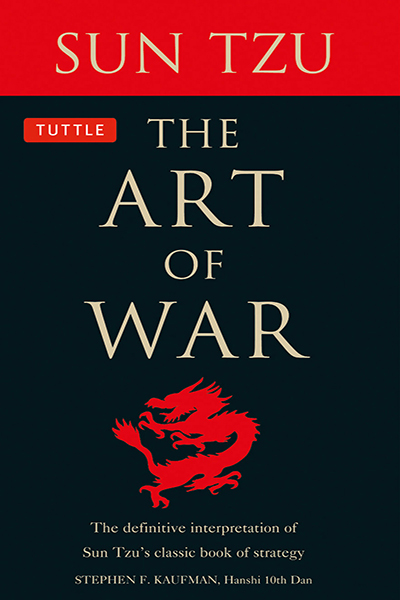The Art of War” by Sun Tzu is a classic treatise on military strategy that transcends its historical origins and continues to be a source of wisdom for leaders across various fields. Written over 2,500 years ago in ancient China, Sun Tzu’s insights into the nature of conflict, strategy, and leadership have proven to be enduring and universally applicable.
The book is divided into thirteen chapters, each addressing different aspects of warfare, from the importance of accurate intelligence to the significance of adapting strategies to the ever-changing circumstances of battle. What makes “The Art of War” stand out is its emphasis on winning without direct conflict, advocating for strategic thinking and careful planning to achieve victory while minimizing the need for actual combat. Sun Tzu’s philosophy is rooted in the belief that the highest form of warfare is to subdue the enemy without fighting.
One of the key strengths of this ancient text is its adaptability. While “The Art of War” is fundamentally a military manual, its principles have found relevance beyond the battlefield. Business leaders, politicians, and scholars have all turned to Sun Tzu’s teachings for guidance in their respective fields. The emphasis on understanding the opponent, exploiting their weaknesses, and leveraging one’s strengths applies not only to warfare but also to the challenges of everyday life.
Sun Tzu’s strategic principles revolve around the importance of flexibility, adaptability, and the ability to perceive opportunities in the midst of challenges. The concept of “knowing yourself and knowing your enemy” is a central theme, emphasizing the necessity of self-awareness and understanding the motivations and capabilities of those one contends with.
While “The Art of War” may seem terse and cryptic to some readers, its brevity is intentional. Sun Tzu believed that a true master of strategy could convey profound insights concisely. The sparse yet impactful prose encourages readers to reflect on the deeper meanings of the text and apply its teachings in various contexts.
Despite its ancient origins, “The Art of War” remains a relevant and influential work. The lessons it imparts on strategy, leadership, and the nature of conflict are timeless. This enduring appeal is a testament to the universality of Sun Tzu’s insights and the enduring relevance of his teachings in the realm of strategy and decision-making. Whether one is a military tactician, a business executive, or a student of human behaviour, “The Art of War” offers a treasure trove of wisdom that continues to inspire and guide readers on the path to success.

